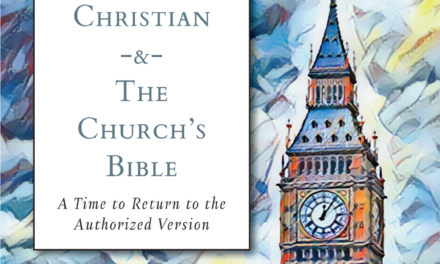From Uncertainty to Certainty:
Epistemology in Textual Criticism
By Rev. Dan Vacco, M.Rel
Greg Bahnsen declares, “A truly Christian defense of the faith must never fail to exalt Christ as Lord over all, including argumentation and reasoning. An apologetic that builds on any other rock than Christ does not honor the greatness of divine wisdom; it is foolishly and audaciously erected on the ruinous sands of human authority.”
He proceeds to explain that in apologetics, Christians should not first follow human philosophy and then try to honor God with authority. Bahnsen’s exhortation is desperately needed in contemporary textual criticism.
Christians studying in various fields often ignore the need for a distinctly Christian epistemology. While this has certainly been the case in scientific studies, it is also often true in text criticism. Text critics largely took modernist and empiricist approaches for the last two hundred years. However, in our contemporary age, we are seeing a decided move to postmodern philosophy.
This essay will briefly present and critique empiricist and postmodern philosophies and will then analyze and critique their usage in textual criticism.
Christians must be aware of the philosophies, with their corresponding epistemologies, behind their text of Scripture. If Scripture is the foundation of all Christian belief, ought we have un-Christian and failed philosophies at the root of the production of the scriptural text? If we abandon Biblical authority in the production of the text of Scripture, will the result be a rock that cannot be broken (Jn. 10:35)?
After proper Christian epistemology is presented and Scripture’s references to itself are discussed, the various approaches will be compared. We will find that one approach to the text of Scripture stands out as being more consistent with the way Scripture speaks of itself and with a philosophical approach that stands on the Word of God itself… KEEP READING





I wish to commend Mr. Vacco for this article. It serves as a fine introduction to the Confessional Bibliology perspective. I have sent this to three other men with whom I have discussed the issue of the biblical text. Thank you for your fine work.
James W. Campbell
James Campbell,
Thank you for the kind words and encouragement. I am glad this can be a blessing to people. Praise God!